Dear Plantlovers,
today, I would like to introduce you to a little growing experiment I am running this year (aside from the community plantbreeding@home-project): The Milpa! "Milpa" is the name for a very old mixed-crop-growing system, originating from Central-America. The system is based on three different plant genera: Corn (Zea mays), Beans (Phaseolus vulgaris) and Squash (Cucurbita pepo). They form such a formidable combination, that they are often referred to as "The Three Sisters", as they grow very harmonically. Every "Sister" has her purpose: the corn acts as trellis for the beans, which help accumulate nitrogen through bacteria they live in symbiosis with. The squash, with its big leafs covers the ground under it, minimizing the evaporation of water from the soil. A genius system! But it does not stop there: Come harvest time, they provide a very balanced and nutricious combination, with corn as a solid source for carbohydrates, beans as supreme protein source and squash as source for many vitamins and micro-nutrients. When I read about the Milpa, I was immediately intrigued and decided to try it myself!
As I know that there are many curious plant-people and hobby scientists here on steemit, I decided to share this experiment with you. Maybe somebody else is as intrigued as I am and will try the same? :)
I decided to grow the corn already indoors to give it a head start before I sow the beans. If you ever want to watch a plant grow extremely fast, corn is for you! Just look at this:
4 days after sowing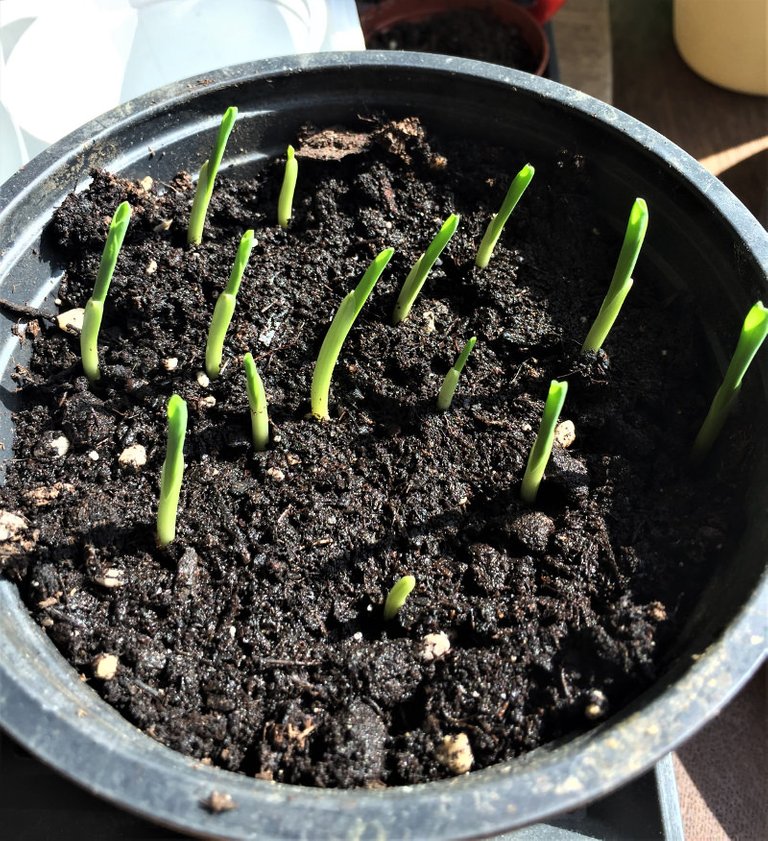
5 days after sowing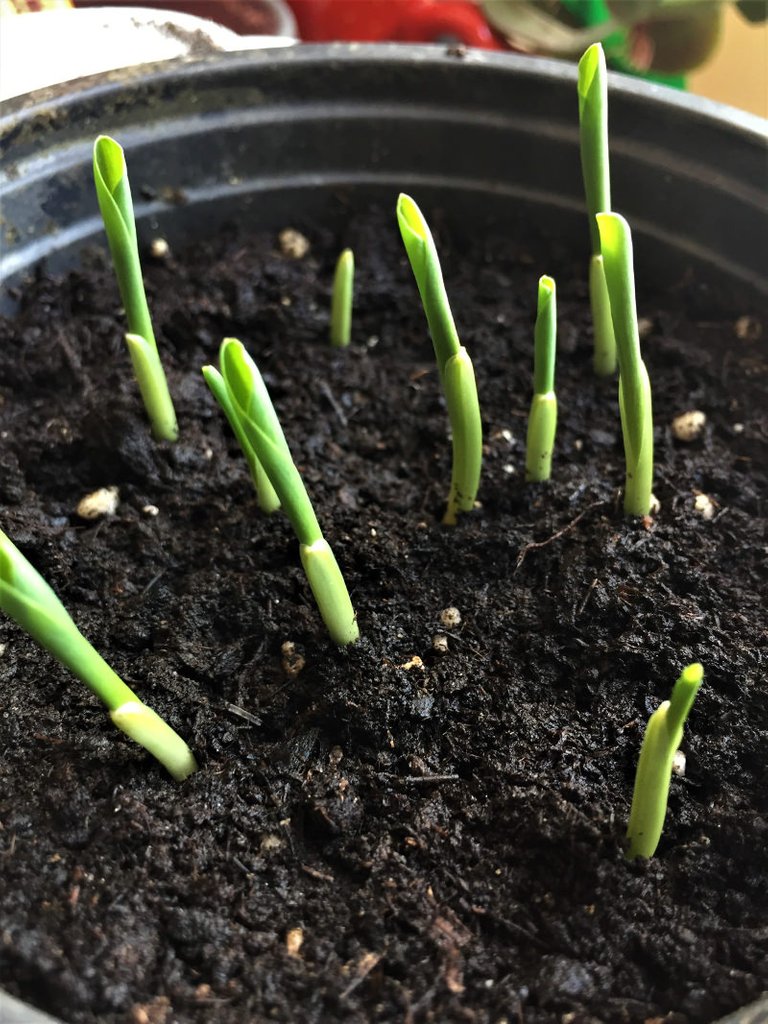
6 days after sowing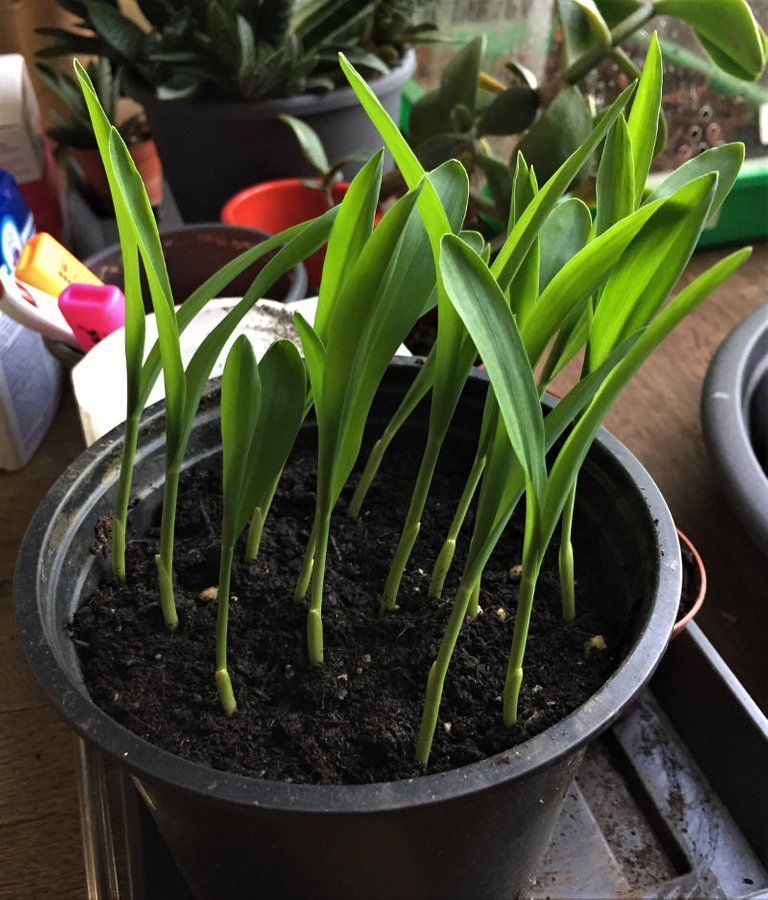
It feels like the plants explode out of their seed, truly awesome!
Here are some pictures of the preparationsof the little plot where everything will be grown and the first plantings:
A new beginning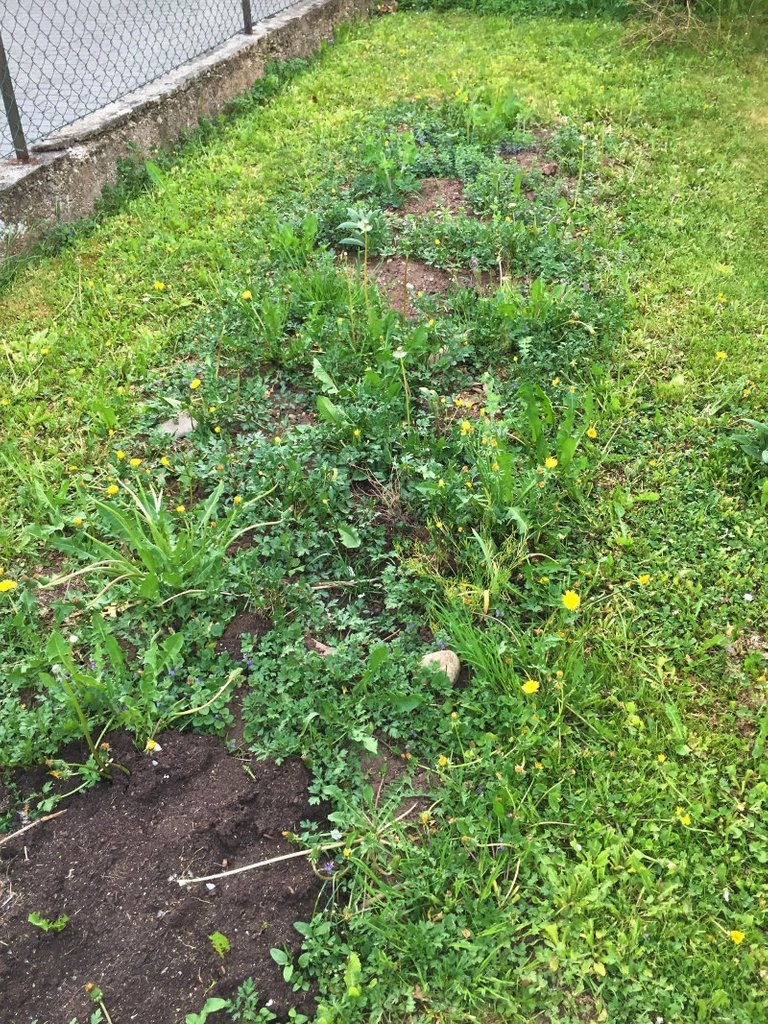
Return of the spade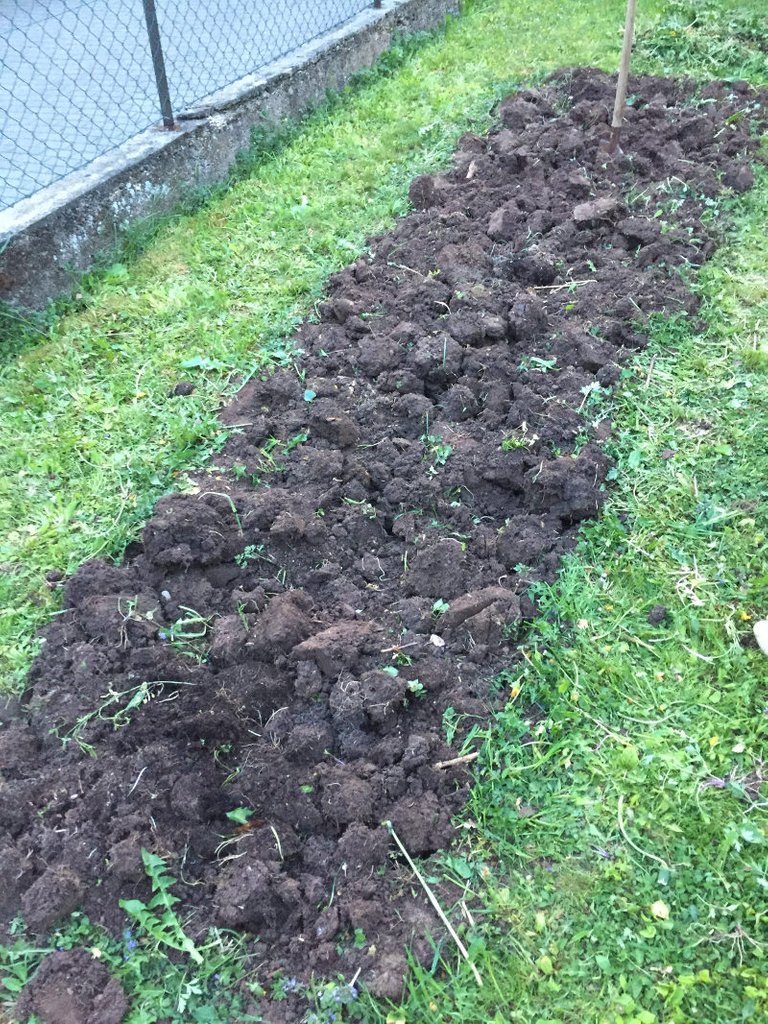
The Milpa strikes back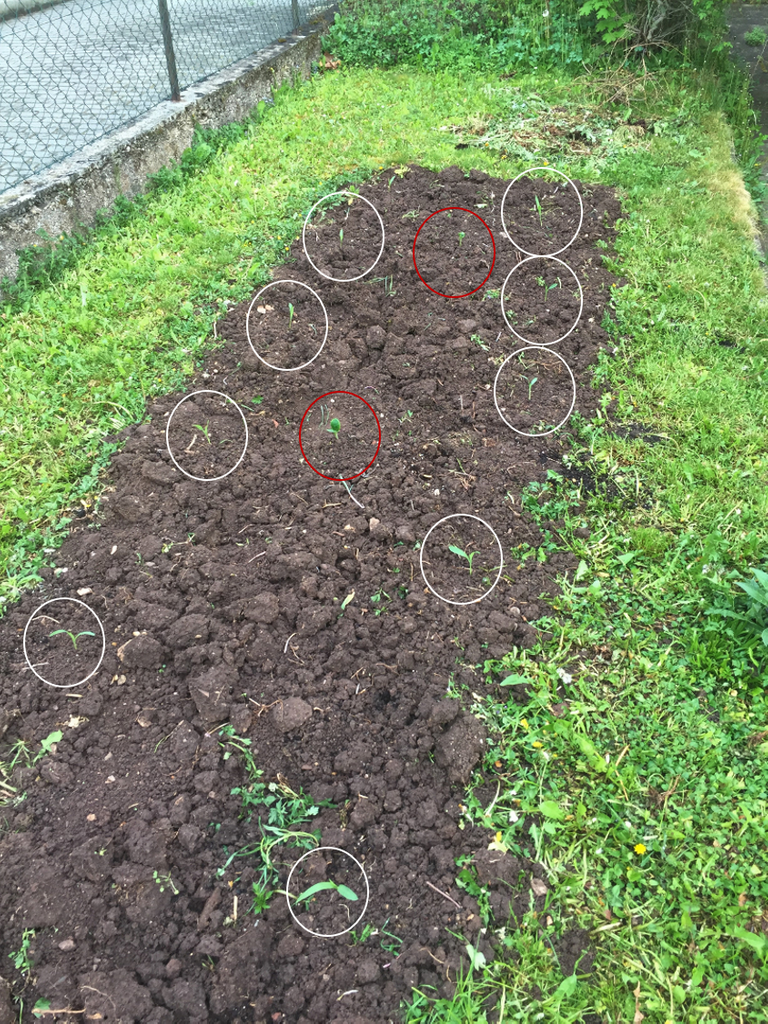
If have marked the different plants with circles to make it easier to spot them, corn is white and squash is marked in red. Here is a closeup of the seedlings:
Corn with some leftover weeds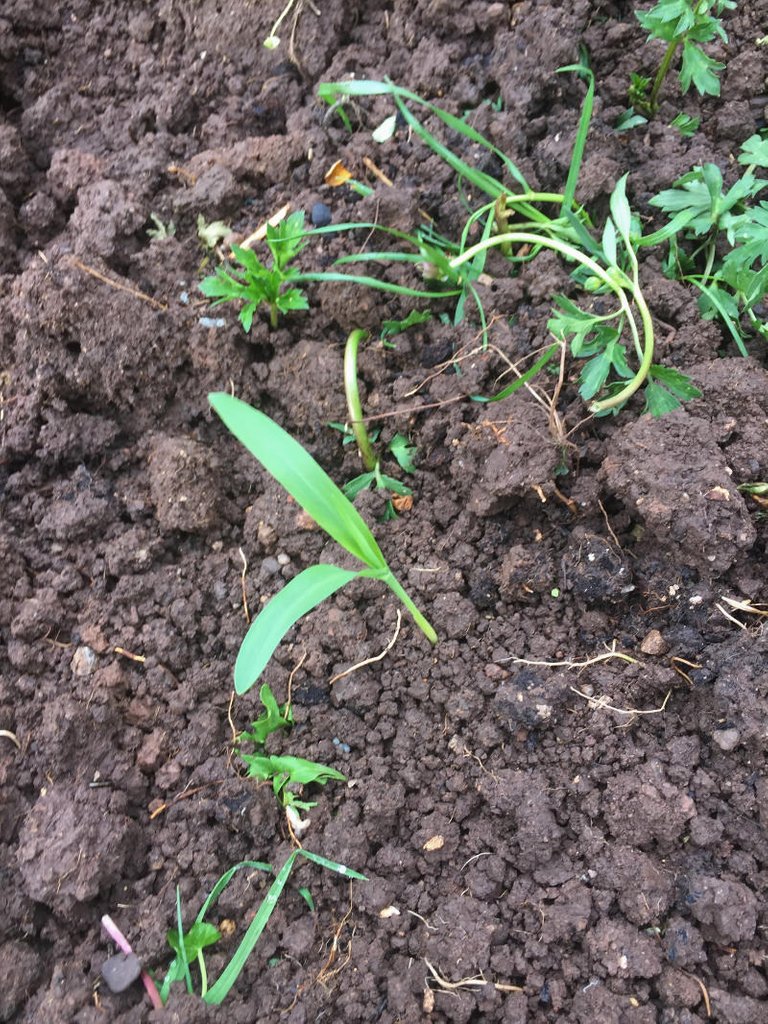
Squash seedling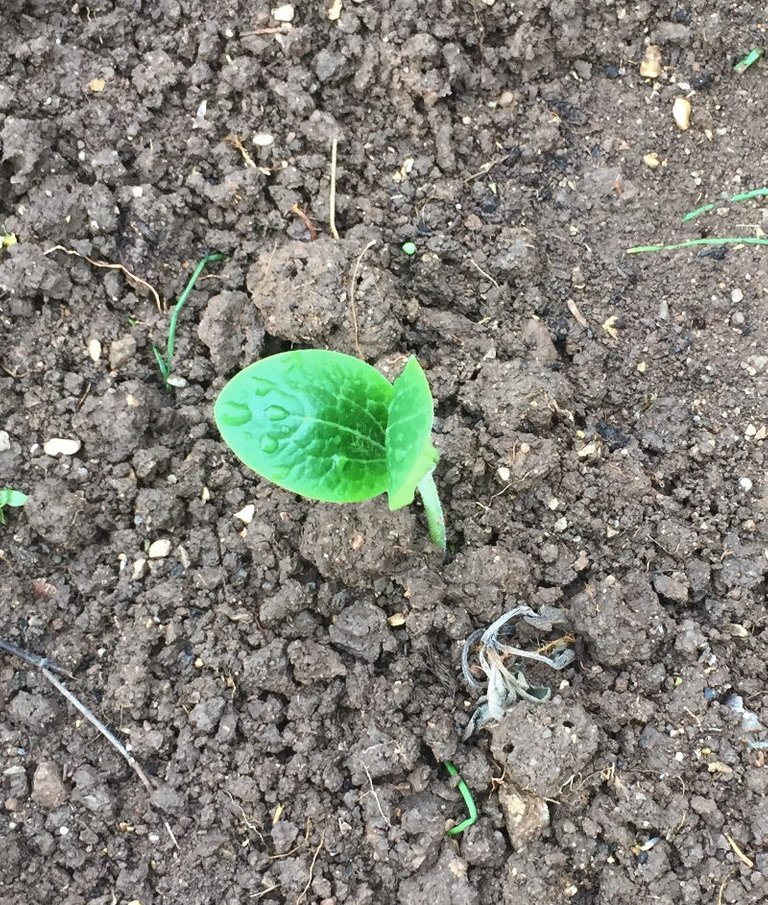
I decided to grow sweet corn (the one you can use to grill at a barbeque with molten butter... Mhmmm), all sorts of beans (Kidney beans, green beans, even purple beans), and some special squash, we call it "spaghetti squash": If you cook it for a while, the flesh of the squash will disintegrate into spaghetti like fibers. This is very usable in all kinds of dishes, and this variety has a nice carrot-potato-squash taste, not to sweet, just perfect!
I hope you enjoy watch me grow my Milpa, and I would be glad if you follow along! As the rest of the project is mainly pictures and updates of the growth of the system and thus not very science related, I will not post the growing updates under the SteemSTEM-tag. If you enjoy the project, just follow me to make sure you catch all the updates! :)
Let's grow together!
Dysprosium
I am definitely giving this system a try :D
Do that! How are the peppers? :)
Interesting. Have you thought about trying to grow microgreens inside? Or to sprout some seeds for salad? There are also small vegetables that can be regrown.
Hey @lavradis,
I have! :) If you look at the picture with the markings where I grow my plants, you will see that I chose to put them quite far apart. I did this for exactly that reason, to grow some other, fast growing stuff in between, and also to provide enough sunlight for the squashs! :) I am not a big fan of growing salad in my garden (maaaany snails), but I will grow especially herbs and also some non-climbing beans in between!
Is the Milpa crop growing system any different than the similar "Three Sisters" grown in North America? I was taught from a young age about how the Native Americans of the Northeast US would grow squash, corn, and beans together. Clearly it's the same idea, I was just wondering why it has a specific name for South America.
Hey @barton26,
I don't think so, it seems to be the very same system! I tried to find out since when the Milpa is grown, but could only find that has been part by the Mayan culture for several centuries. I also noticed therefore that it is not South, but Central America where it came from (geography, ahem... ;) ) and updated this in the post. I think there was some exchange between the Mayas and the Native Americans, and especially effective agriculture can spread rather quickly. I can not tell you at this point who copied whom, but I will try to find out!
Glad I could help correct the post! It does make sense that the knowledge of these crop growing techniques could have easily spread across the Americas. Thank you for the knowledge :)
Hi. Interesting. I was not aware of that type of crop.
Now that we have problems with food and lack of medication, I have had to plant, for example, plantain.
It turns out that it has grown but in an ornamental bush. hahaha truly that there are experiments that results are uncontrollable, especially if it is with living beings, including plants.
It's more I sowed chili and it's milky. LOL
Thanks for your instruction
Hey @isachrist59,
glad I could inspire you! But what do you mean, the chili was milky? :)
Great Post! I will be following the progress. I have only grown corn and beans and did so in pots. The corn was a short plant that started to pollinate way to early (before the female portions started to show) and the beans were very few. I still need to sow my seeds for this years crop.
Hey @csusbgeochem1,
some plants, especially corn, are tricky to grow in pots. Usually plants start to flower if they run out of space to grow, even more if they run out of nutrients. If you apply fertilizer regularly, it should continue growing, but you_ll have the problem that the plant will need a lot of water as it becomes too big for its pot. And if they are too dry all the time, they'll also start to flower as "emergency measure". But I understand too well that space is limited, and bigger pots are not always an option! If you have the chance try to plant the corn outdoors, if thats not possible, be sure to fertilize and water it regularly! Concerning the beans, there are certain varieties that have been designed to grow well in pots. I had one of those last year, and although the pot was not huge, I could harvest a decent amount of beans! Let me know if you need specific advise, I am always happy to help a fellow gardener!
A lot of power is concentrated in these little seeds!
Definitely! :) I was amazed how fast the corn grew, especially as it germinated after 2 days!
By the way: Have you seen the last plantbreeding@home-post? I have not forgotten about you, but I could not find anything about seed import regulations. If you can help me, I would still be happy to send you seeds to participate!
Do not worry! We will definitely solve the problem with the transfer of seeds. We have already missed this season, but we still have many seasons ahead of us. Next week, I already plan to start landing on the open ground.
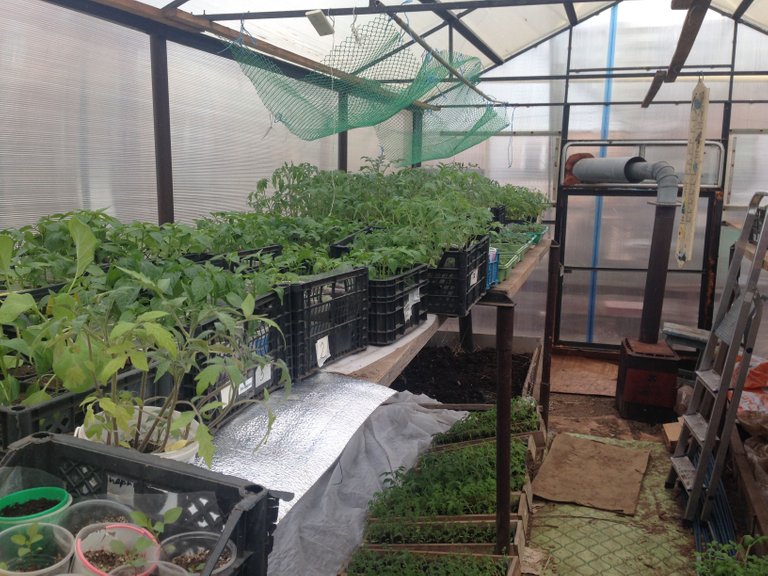
Congratulations @dysprosium! You received a personal award!
You can view your badges on your Steem Board and compare to others on the Steem Ranking
Vote for @Steemitboard as a witness to get one more award and increased upvotes!